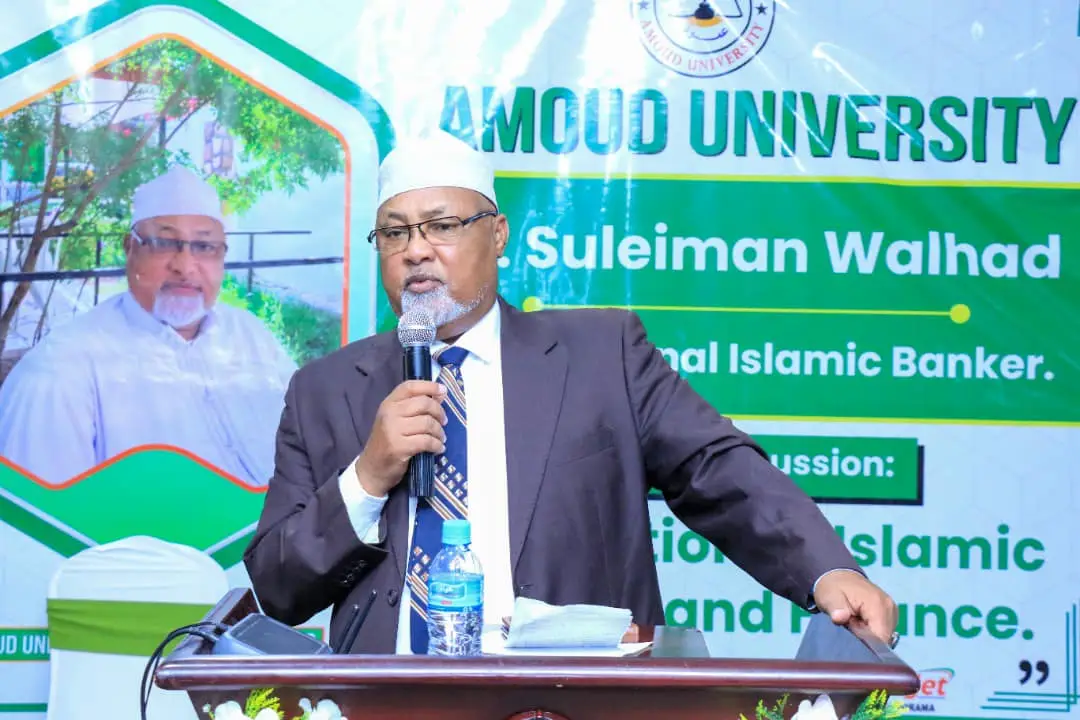 In the midst of complex political dynamics, Ethiopia’s current Prime Minister, Abiy Ahmed stands as a controversial figure. Behind the numerous accolades and a Nobel Peace Prize, some assert accusations of prejudices linked to his own ethnic background. Specifically, they claim that Abiy exhibits a disdain for his mother’s Amhara ethnicity. In this article, we examine these claims in a bid to understand their basis, and whether they hold water. We navigate through Abiy’s administration, policies, and personal choices, unveiling the possible influences of ethnic identity. Dive in with us, as we explore the intriguing narrative surrounding one of Africa’s prominent leaders.
In the midst of complex political dynamics, Ethiopia’s current Prime Minister, Abiy Ahmed stands as a controversial figure. Behind the numerous accolades and a Nobel Peace Prize, some assert accusations of prejudices linked to his own ethnic background. Specifically, they claim that Abiy exhibits a disdain for his mother’s Amhara ethnicity. In this article, we examine these claims in a bid to understand their basis, and whether they hold water. We navigate through Abiy’s administration, policies, and personal choices, unveiling the possible influences of ethnic identity. Dive in with us, as we explore the intriguing narrative surrounding one of Africa’s prominent leaders.
Background on Abiy Ahmed
Abiy Ahmed is one of the most influential figures in Ethiopia, but his rise to power has been marked by controversy and accusations of ethnic bias. There are claims that he dislikes his ethnic background due to his mother being Amhara.
Early Life and Ethnic Background
Abiy Ahmed, born in Beshasha, Ethiopia to a Muslim Oromo father and a Christian Amhara mother, has a complex ethnic background that has played a significant role in his political career. Many claim that Abiy harbors an inherent resentment towards his Amhara ethnicity through his mother’s lineage. This ethnic tension within his personal background has fostered bitter relations with the Amhara community in Ethiopia.
Political Career
Abiy Ahmed’s political trajectory has been on an upward spiral since he first joined the Ethiopian People’s Revolutionary Democratic Front (EPRDF) as a teenager. He has swiftly risen from a low rank member to the position of Prime Minister. However, his ascent to the pinnacle of power has not been without challenges. Amidst myriad accomplishments, there exists controversies and allegations surrounding Abiy Ahmed’s preferential treatment towards the Oromo ethnicity while disregarding the Amhara ethnic group. Allegations of favoritism have thus clouded his political career and painted him as a potential ethnic-chauvinist leader, contrary to his proclaimed message of unity and inclusivity. 🕊️
It’s important to note that these allegations have had a significant effect on his leadership, inciting anger and resentment from those who feel marginalized.
The next section will delve deeper into the ethnic tensions that exist in Ethiopia and how Abiy Ahmed’s personal background and political decisions have heightened these issues. Stay tuned.
Ethnic Tensions in Ethiopia
Ethnic tensions in Ethiopia have been a major point of contention throughout history. The nation’s rich cultural diversity, coupled with political complexities, has resulted in a labyrinthine set of relationships between different ethnic groups.
Overview of Ethiopian Ethnic Groups
Ethiopia is a kaleidoscope of diverse ethnic groups, each with its own unique cultural fabric and historical narratives. The country is home to over 80 ethnolinguistic groups, with the Oromo, Amhara, Somali and Tigrayans being the most populous. Within each group, there are distinct subgroups, each priding itself on its individuality.
The Oromo, forming the largest ethnic group, inhabit regions stretching from central to southern Ethiopia. As part of the Cushitic ethnic family, they have distinct linguistic patterns different from the Semitic-speaking Amhara and Tigrayans.
The Amhara people, from whom Abiy Ahmed partly descends through his mother, assert a significant influence over the country’s political landscape. Their region, Amhara, remains integral to the texture of Ethiopia’s historical and cultural identity. Despite Abiy’s Amhara heritage, his policies sparked accusations of favoring his Oromo lineage, creating a wave of tension between the two ethnic groups.
Historical Ethnic Conflicts
Historically, Ethiopia’s ethnic tapestry has been embroidered with conflicts that have defined the country’s political dynamics. Power struggles between the Oromo and Amhara ethnic groups have been a recurring theme over centuries. The formation of modern Ethiopia in the late nineteenth century was marked by the Amhara’s political domination, a source of grievance amongst the Oromo.
During Mengistu Haile Mariam’s communist Derg regime (1974-1991), ethnicity was relegated to an unimportant status, leading to widespread discontentment and sporadic outbreaks of violence.
Under the EPRDF rule (1991-2019), a federalism system was instituted, granting greater autonomy to different ethnic regions. Yet, perceived imbalances in power distribution exacerbated ethno-regional tensions, particularly the Oromo feeling marginalized and subjected to political and economic inequality.
Tensions peaked with the appointment of Abiy Ahmed, an Oromo with Amhara lineage. His tenure illuminated deep-seated fractures along ethnic lines, causing convulsions in the country’s political stability. His Oromo-centric approach was seen as a betrayal by his mother’s Amhara ethnicity, strengthening the chasm between the two ethnic groups.
In viewing Ethiopia’s ethnic conflicts, it is crucial to understand the intricate tapestry of cultural dynamics and political maneuverings that have fueled these tensions for centuries. One clear certainty is that the way forward will require acknowledging Ethiopia’s rich cultural diversity while forging a cohesive national identity.
Controversies Surrounding Abiy Ahmed
Among Ethiopian politics, Abiy Ahmed is a controversial figure, elicting reactions that are as varied as they are impassioned. Central to these controversies are allegations of ethnic bias and his responses to criticism.
Accusations of Ethnic Bias
Abiy Ahmed’s ethnic background is a significant aspect of his public identity. Being of Oromo descent through his father and Amhara through his mother, he is often scrutinized for favoritism or anti-ethnic sentiments. Critics have accused Ahmed of harboring anti-Amhara sentiments, inherited from his mother’s side. They argue that his policies lean towards the suppression of the Amhara ethnic group, a group predisposed to power in Ethiopian politics for centuries.
These critics often point to patterns of political imprisonment and violence against Amharas during his tenure as prime minister. Attention has also been drawn to the close ties that Ahmed purportedly maintains with the Oromo ethnic group, which is often regarded as a marginalized group in the widescreen of Ethiopian politics. In this context, his perceived favoritism towards one ethnic group over another has been a point of incessant debate.
Response to Criticism
In response to these accusations, Abiy Ahmed has professed a commitment to unity and nation-building. He has on multiple occasions, emphasized a departure from divisive tribal politics towards a forward-looking stance that respects the country’s diversity.
His followers argue that the perceived anti-Amhara bias is a misinterpretation of his initiation of reforms targeted at rectifying historical injustices. And the support he has maintained within the Oromo community is a reflection of their collective aspiration for Ethiopia’s unity.
Critics, however, remain unconvinced, stating that Abiy Ahmed’s actions speak louder than his words. They call for vigilance and continued scrutiny of his governance, as the narrative of ethnic bias continues to challenge his leadership.
Ultimately, whether one views Abiy Ahmed as a unifying figure guiding Ethiopia towards peace and transformation, or a controversial politician advancing an ethnocentric agenda, largely depends on individual perspectives aligned with complex and deep-rooted ethnic dynamics in Ethiopian politics.
The controversies surrounding the leadership of Abiy Ahmed exemplify the intricacies of navigating politics in a culturally diverse nation such as Ethiopia. His political career undeniably holds significance on the country’s sociopolitical landscape.
Impact on Ethiopian Politics
The policies and reforms initiated by Abiy Ahmed and the implications these hold for Ethiopia’s political future merit careful discussion. Abiy’s leadership period has been a time of considerable political transitioning for the African nation, foundational to which are the political and socio-economical changes he has introduced.
Policies and Reforms
Abiy Ahmed prototype a profound impact on Ethiopian politics through his ambitious policies and reforms. His political philosophy, known as ‘Medemer’ (meaning adding or synergy), aimed to foster unity and prosperity in a nation marked by decades of ethnic division and conflict.
Back in 2018, Abiy started by amending Ethiopia’s authoritarian legacy, releasing political prisoners and initiating a range of political and economic reforms. These include limiting the power of the security office, liberalizing the state-dominated economy, and initiating peace talks with Ethiopia’s long-time enemy, Eritrea. Additionally, Abiy lifted bans on numerous opposition groups classified as terrorist organizations under the former regime.
His reforms, particularly those allowing for greater political and press freedoms, earned him the 2019 Nobel Peace Prize. However, rapid political change also led to increased ethnic tensions within Ethiopia, posing a significant challenge to Abiy’s reform agenda.
Long-term Political Implications
Looking at the broader implications of Abiy’s tenure; the radical reforms aim to steer Ethiopia from ethnic federalism towards more centralized governance, leading to fears among some groups of reduced regional autonomy.
Abiy’s pledge to hold open elections is viewed as a significant step towards democracy; however, the pushback he received from distinct Ethiopian factions in different regions demonstrates how resistant various ethnic groups are towards a centralized power system.
In his pursuit of liberal democracy, Abiy’s willingness to confront entrenched interests has won him admirers but also made him numerous enemies, creating a volatile political environment in Ethiopia.
In all, the political implications of Abiy Ahmed’s governance are far-reaching and transformative. His leadership has started a ripple effect that will shape Ethiopian politics for years to come. His challenge will continue to be navigating Ethiopia’s complex ethnic landscape while trying to progress his reformist ideology.
International Perception and Media Representation
Abiy Ahmed’s hold on Ethiopia’s political sphere has not been confined to national borders. On the contrary, his influence, policies, and the tensions surrounding him have drawn substantial attention from international media outlets and global leaders alike.
Coverage by International Media
The international media’s coverage of Ahmed’s reign as Ethiopia’s Prime Minister has taken on multiple angles. Initially, headlines revolved around his ascendancy to power, with a focus on his mixed ethnic background and his brave promises about socio-political reforms.
Several international media outlets applauded his commitment to advancing women’s rights, evident through his decision to nominate women to half of his cabinet positions. His peace-making efforts with Eritrea, which led to him winning the Nobel Peace Prize in 2019, equally caught the attention of the international press.
However, the narrative shifted as ethnic tensions escalated in Ethiopia, with the international media spotlighting Ahmed for the controversial handling of these issues. Accusations of ethnic bias, particularly towards his mother’s Amhara ethnicity, have been a recurring theme in the global press. Moreover, the internal conflict in Tigray and the consequent humanitarian crisis have further painted Ahmed in a negative light in the international media arena.
Reactions from Global Leaders
Global leaders’ responses to Ahmed and his administration have been a mix of admiration, concern, and criticism.
On one hand, some leaders praised his initial reformative efforts, especially his successful peace treaty with Eritrea. The rewarding of the Nobel Peace Prize was a testament to the international community’s acknowledgment of his efforts towards peace.
However, as ethnic tensions in Ethiopia heightened, global leaders adopted a more cautious stance towards Ahmed. Questions about his impartiality and commitment to proportional representation of all ethnicities led to international skepticism about his leadership.
Furthermore, the violence and human rights abuses that occurred under Ahmed’s watch in the Tigray region have attracted global condemnation. Various international bodies and leaders have called for investigations into these allegations, putting Ahmed’s leadership under serious scrutiny.
In summary, while Abiy Ahmed commenced his term with a branding of a peace broker and reformer in the international media and among global leaders, the subsequent events have disrupted this perception. As media coverage illuminates the ambiguous and questionable circumstances of his rule, international leaders are faced with the task of reassessing their stance towards this influential yet controversial figure.


